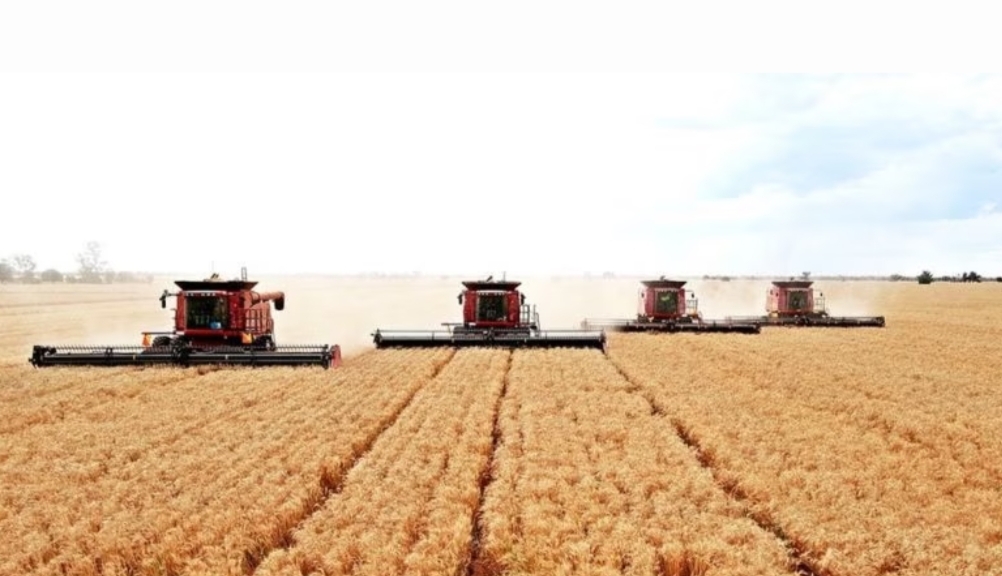
Australia, with its vast and diverse landscapes, has always been a land deeply rooted in agriculture. From the fertile plains of New South Wales to the expansive fields of Western Australia, the agricultural industry plays a vital role in the country’s economy and food security. This article will explore the role of mechanised agriculture and highlight the contributions of agricultural machinery manufacturers in Australia.
Enhancing Efficiency through Modern Machinery
In a country as vast as Australia, where farms span thousands of hectares, the adoption of advanced agricultural machinery has become imperative for farmers. The use of cutting-edge equipment has significantly enhanced the efficiency of farming operations, enabling farmers to achieve more in less time. Tractors, harvesters, and other mechanised tools have revolutionised the way Australian farmers operate, allowing them to cover larger areas and undertake multiple tasks simultaneously.
In Australia’s diverse agricultural landscape, where different crops are cultivated, mechanised agriculture offers immense benefits. Whether it’s the precision planting of wheat in the vast wheat belts or the efficient harvesting of fruits in the orchards of Victoria, modern machinery plays a pivotal role. GPS-guided systems and automated sensors enable farmers to precisely plant, monitor, and harvest their crops, resulting in increased yields and reduced waste.
Sustainable Farming Practices
Australia is known for its commitment to sustainable farming practices, and mechanised agriculture plays a crucial role in achieving this goal. By adopting advanced machinery, farmers can optimise the usage of resources and reduce their environmental impact. Precision agriculture techniques, made possible through mechanisation, allow farmers to apply water, fertilisers, and pesticides judiciously, minimising waste and potential harm to the environment.
Agricultural machinery manufacturers in the country are at the forefront of promoting sustainability. They are incorporating eco-friendly features into their equipment, such as fuel-efficient tractors and autonomous drones for targeted crop monitoring. These advancements not only contribute to sustainable farming practices but also help farmers comply with stringent environmental regulations.
Supporting Rural Communities
The impact of mechanised agriculture goes beyond enhancing farm operations; it positively affects rural communities throughout Australia. The use of advanced machinery has alleviated the physical burden on farmers, enabling them to focus on higher-value tasks and improving their overall well-being. Moreover, increased efficiency and productivity have opened up new employment opportunities in rural areas, stimulating local economies.
Agricultural machinery manufacturers have played a significant role in supporting rural communities. By manufacturing and supplying state-of-the-art equipment, these companies have created job opportunities and contributed to the growth of local businesses. The success of the agricultural machinery sector has also bolstered Australia’s export industry, with the country exporting its machinery to other agricultural regions worldwide, further strengthening the economy.
Future Prospects and Challenges
The future of mechanised agriculture in Australia holds both opportunities and challenges. While the adoption of advanced machinery has already revolutionised the industry, ensuring equal access to this technology remains crucial. Small-scale farmers, in particular, need support to overcome financial barriers and receive proper training to utilise mechanised equipment effectively. Collaborative efforts between agricultural machinery manufacturers, government bodies, and industry associations can bridge these gaps and promote the widespread adoption of mechanised agriculture. Looking ahead, the integration of emerging technologies like artificial intelligence, robotics, and automation will shape the future of mechanised agriculture in Australia.
Mechanised agriculture has become a driving force in empowering Australian farmers with advanced equipment. With the contributions of agricultural machinery manufacturers in Australia, the industry has witnessed increased efficiency, sustainability, and economic growth. As Australia’s agricultural sector continues to evolve, it is crucial to ensure equal access to mechanised equipment and embrace emerging technologies to drive innovation. By harnessing the power of mechanised agriculture, Australia can secure its position as a global leader in sustainable farming practices and contribute to a thriving agricultural industry.
